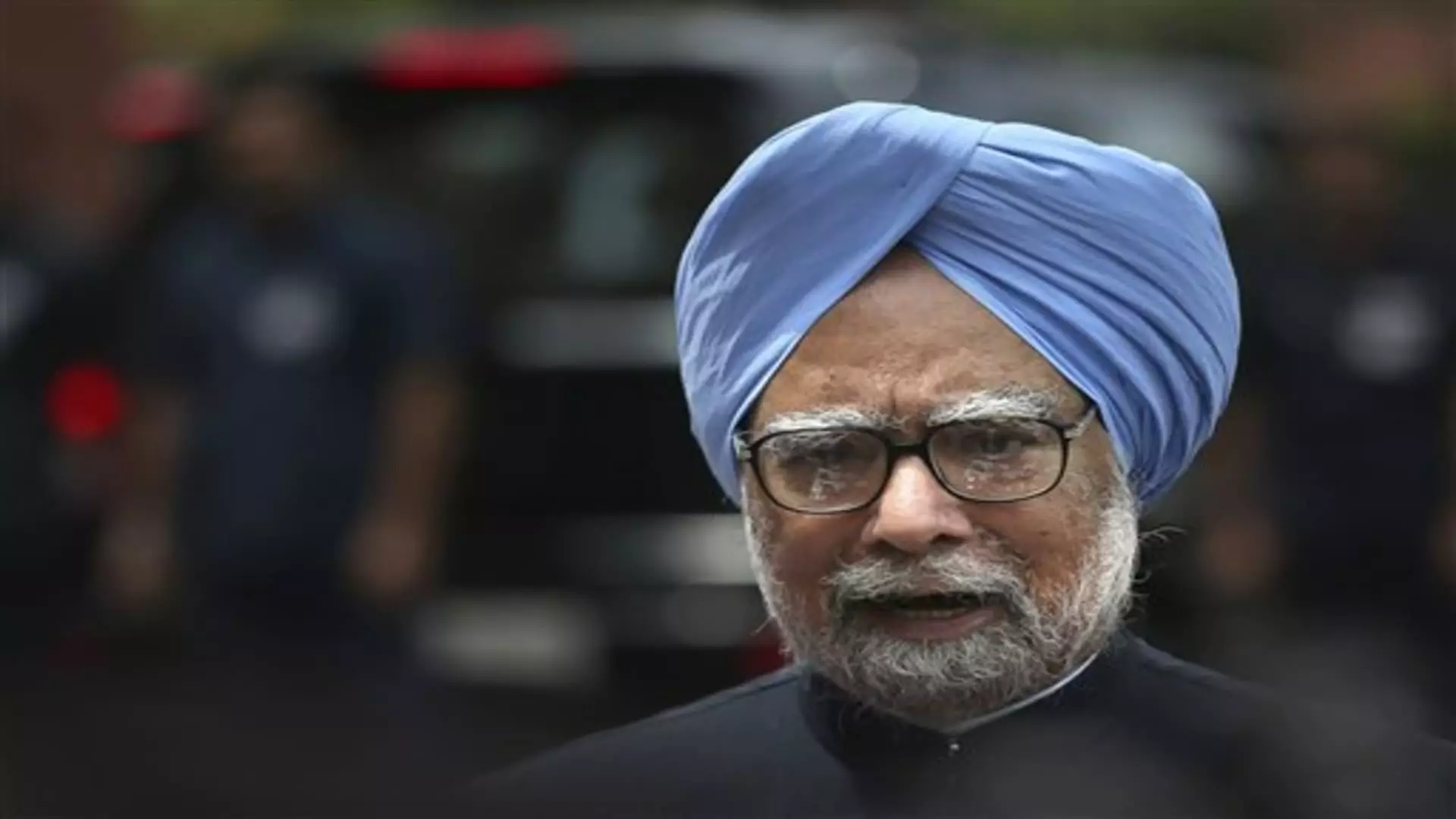Manmohan Singh, who passed away at the age of 92, was a figure who made significant contributions to India’s modern development, often described as a “reluctant king.” Born into poverty in what is now Pakistan, Singh’s journey from studying under candlelight to earning degrees at renowned institutions such as Cambridge and Oxford is a testament to his dedication and intellect. While his modest demeanor might have led some to underestimate his potential, his tenure as prime minister unveiled a remarkable leader capable of navigating India’s tumultuous political landscape.
Singh’s ascent to prominence began when he took on the role of Finance Minister in 1991 amidst a severe balance-of-payments crisis. At this crucial juncture, he outlined and implemented economic reforms that not only salvaged the economy from collapse but also positioned India on a path to unprecedented growth. By promoting deregulation and liberalization, Singh transformed an insular economy into one that could compete on the global stage. His famous assertion—that “no power on earth can stop an idea whose time has come”—captured the essence of the changes he spearheaded, as India flourished and millions were pulled from the clutches of poverty through new economic opportunities.
The Surprise Prime Minister
In 2004, Singh’s elevation to the prime ministership came as a shock, arranged by Sonia Gandhi of the Congress party who, due to her Italian ancestry, feared backlash from Hindu-nationalist adversaries. Singh’s administration coincided with a boom period, during which welfare initiatives like rural job programs were introduced to ensure the newly created wealth benefited those at the bottom of the economic ladder. His government’s success in negotiating a nuclear energy trade agreement with the United States in 2008 marked a significant milestone in strengthening international relations, particularly between New Delhi and Washington.
Despite his numerous achievements, Singh faced substantial challenges during his tenure. The internal dynamics of coalition politics often hampered his ability to push for reforms, as rival factions within his party and allied parties made it difficult to maintain a coherent agenda. Furthermore, the narrative that Sonia Gandhi, rather than Singh, was the true source of power muddied his legacy. This perception continued to rise, eroding his standing at home while internationally, he maintained respect among fellow leaders.
Singh’s integrity was rarely questioned, yet he found himself facing intense scrutiny as scandals erupted within his administration during his second term. These incidents not only shocked the public but also sparked mass protests that shook the foundations of his government. As growth began to falter in the latter years of his premiership—complicated by global economic challenges and slow legislative action—his administration was perceived as faltering, resulting in a loss of political clout.
By 2012, Singh’s government was reduced to a minority following the exit of Congress’s largest coalition partner. The political environment became increasingly hostile, with a rising Bharatiya Janata Party (BJP) promising a more decisive governance approach under Narendra Modi. As Singh faced mounting criticism from the opposition and media, his insistence that he had done his best became a defining moment in his legacy. He noted, “I honestly believe that history will be kinder to me than the contemporary media or, for that matter, the opposition parties in parliament.”
As we reflect on Singh’s legacy, it is essential to recognize that his contributions to India’s economic transformation were monumental. His ability to facilitate a paradigm shift in how the economy functioned was revolutionary, setting the stage for future progress. Though his tenure was marred by challenges and controversies, Singh’s modest lifestyle and commitment to honesty remain commendable traits that distinguished him among modern leaders.
Manmohan Singh leaves behind not just a family, including his wife and three daughters, but also a complex legacy that elicits both admiration and critique. The perception of him as a quiet, reluctant leader sometimes overshadowed his profound impact on India’s direction. Nevertheless, the historical significance of his work is indeniable. As India reflects on its past leaders, Singh’s story should serve as a reminder that often, the most profound changes come from those who do not seek the spotlight but instead strive quietly for progress.


Leave a Reply